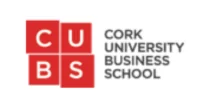International Project Management Day happens every year on the first Thursday in November. On learning of this, I was worried. As a conscientious PMP®, what was I supposed to do to celebrate this day? Are project managers entitled to a day off on International Project Management Day? Do we all need to face the Project Management Institute’s headquarters in Newtown Square, Philadelphia, Pennsylvania and, simultaneously sacrifice a chicken to the Great Portfolio Manager in the sky? Or would the day involve a druidic twist where we would all frolic nude around the nearest dolmen, wearing nothing but our CAPM® or PMP® certification (non CAPM® and PMP® people using a strategically placed PMBOK® Guide)?
As the possibilities became more bizarre, I decided to investigate by visiting the International Project Management Day website. Here I learned that the day is the brainchild of one Frank P. Saladis. We can have confidence in Frank, because he too is a PMP®. However, in light of the possibilities I had considered, his concept of what to do is a bit bland: “The international project management day (IPM day) is intended to encourage project based organizations worldwide or organizations who utilize project management methodologies to schedule some type of recognition event within their organizations or coordinated locally with others”, the goal being to “demonstrate appreciation for the achievements of project managers and their teams”.
Now this is all well and good, but it suggests that there should also be days for the other professions – International Solicitors Day, International Dental Hygienists Day and so on. But, more profoundly, why should we only consider project management on a single day, when most projects span months or even years? Maybe Frank is hoping to make a killing on Happy Project Management Day cards.
However, I do agree that a day (or even several days) need to be dedicated to celebration in the context of each project. Project work can be very unsatisfying as a way of making a living. Companies that pay particular attention to resource histograms and practice resource levelling (remember these from your PMP® training?) will strive to optimize resource utilization by moving staff from one project to the next as soon as possible. For these people, they rarely see the fruits of their labours. Eventually, they become like assembly line workers – doing their bit but never getting to experience the finished product, or even getting to see the look of satisfaction on the end customers’ faces.
While only 8% of the PMP® exam is devoted to the Closing process group, project managers need to ensure that everyone on the team gets some recognition or feedback before they leave a project. Agile organizations are particularly good at this. At the end of each iteration, the team meets the customer and gets feedback on the project so far. They also get a chance to contribute to the running of the project by suggesting better working conditions. Sadly, in waterfall-style projects, many of the team members will move on without any feeling for how well or how badly they did.
The Project Management Institute names its main closing process: “Close Project or Phase”. While many project managers do conduct lessons learned exercises and carefully archive their project documents at project end, how many hold interim reviews? In terms of team members leaving the project at mid-stream, their departure should coincide with a major milestone and a review should be scheduled for these times.
It is a similar idea to the Agile “Definition of Done”. No one should be allowed to leave a project without having their work reviewed, appraised and any lessons learned added to the organization’s knowledge base. If projects benefit from feedback and lessons learned, so too will individuals. It is very satisfying having closure at the end of a project (or, at least, your part of the project). If your work has been good, then you will appreciate recognition for this, but even if it was poor, you can learn from the experience and do better on the next project.
The project also benefits. A big drawback with the way we carry out work is the Work Breakdown Structure (as described in the Project Scope Management module of PMP® courses). There is a danger that the work will be divided into logical chunks and individuals will work independently on each chunk, with a massive integration phase at the end. Sadly, most errors on development projects relate to interfaces; so the sooner we do integration, the sooner we will uncover these problems. Integrating an individual’s work into the whole project before s/he moves onto another role will provide feedback, but will also get issues resolved while that person is still available to the project.
So instead of having a single International Project Management Day, let us schedule feedback days, or milestone days into our projects when we can assess progress to date and appraise the work that has been done. Let everyone who contributes to a project leave with a sense of achievement, or at least the determination to do better next time around.
For more information about project management certification, please visit our courses page. For your convenience, we run our project management courses online in our virtual classroom. To get more details, please contact us directly. We are available all year round, not just on International Project Management Day.2022_x000D_

















